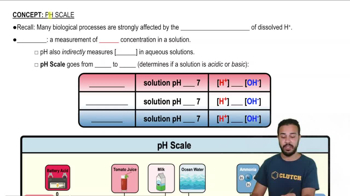Mrs. Roberts, in a diabetic coma, has just been admitted to Noble Hospital. Her blood pH indicates that she is in severe acidosis (low blood pH), and measures are quickly instituted to bring her blood pH back within normal limits.
a. Define pH and note the normal pH of blood.
b. Why is severe acidosis a problem?






